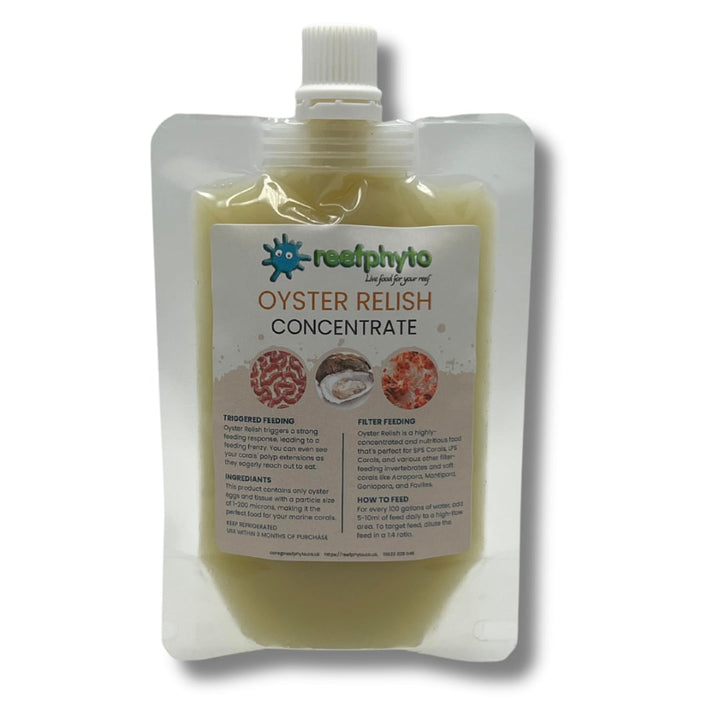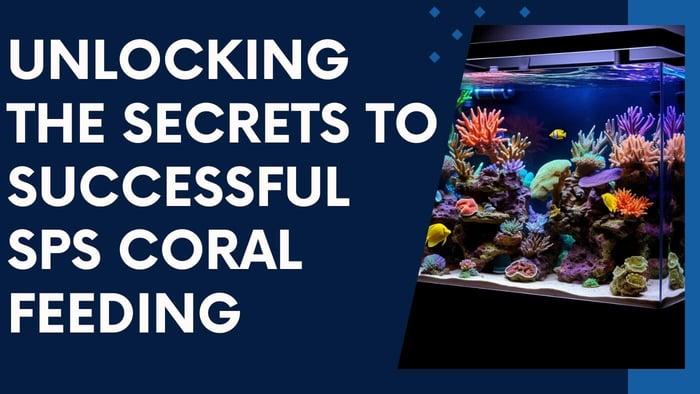Unlocking the Secrets to Successful SPS Coral Feeding
Keeping SPS (Small Polyp Stony) corals in a home aquarium can be rewarding yet challenging for any reef enthusiast. These beautiful, delicate corals are known for their vibrant colours and intricate structures, but they require special care and attention to thrive. One of the critical factors in their success is proper feeding. In this blog post, we will dive into the secrets of successful SPS coral feeding, shedding light on the essential factors to consider and the various feeding strategies to help your SPS corals flourish.
Understanding SPS Corals
Before we delve into the specifics of feeding, it's essential to understand the nature of SPS corals. Small Polyp Stony corals are a diverse group, including Acropora, Montipora, Pocillopora, and Seriatopora. They are characterized by their hard, calcareous skeletons and tiny polyps that extend from the coral's surface to capture prey. SPS corals rely on both photosynthesis and capturing planktonic organisms for their nutrition.
Feeding Strategies
1. Light and Photosynthesis
SPS corals are primarily photosynthetic, so they rely on light for energy. To maximize their photosynthetic potential, you should provide them with the right intensity and spectrum of light. Quality reef lighting, such as LED fixtures, can ensure your SPS corals receive the necessary light for photosynthesis.
2. Suspended Particulate Matter
In addition to photosynthesis, SPS corals can capture small suspended particles from the water column. These particles can include plankton, phytoplankton, and zooplankton. To enhance the availability of these particles for your corals, consider the following:
a. Filtration: Utilise high-quality protein skimmers and mechanical filters to maintain water clarity and reduce the concentration of dissolved organics, which can interfere with coral feeding.
b. Water Flow: Proper water flow is crucial to transport suspended particles to the coral polyps. Use wavemakers and powerheads to create gentle but random water movement within the aquarium.
3. Targeted Feeding
While SPS corals can capture some particles from the water, a proactive approach to feeding can significantly benefit their growth and colouration. Here are some methods of targeted feeding:
a. Broadcast Feeding: This involves adding liquid coral foods or coral-specific powdered foods to the water column, allowing the corals to capture the particles as they drift by. Be cautious not to overfeed, as excess nutrients can lead to water quality issues.
b. Spot Feeding: Use a turkey baster or pipette to target feed individual coral polyps. This ensures that each coral receives its share of nutrients. Some suitable spot-feeding foods include zooplankton, phytoplankton, and specialised coral food preparations.
c. Feeding Schedule: Establish a consistent feeding schedule to maintain proper nutrition for your SPS corals. Adjust the frequency and quantity of food based on the size and type of SPS corals in your aquarium.
Oyster Relish Concentrate

£12.95
Oyster Relish Concentrate – Premium Coral & Reef Nutrition Supercharge your marine ecosystem with Oyster Relish Concentrate – the ultimate reef food trusted by coral keepers worldwide. Specially formulated for SPS and LPS corals, filter-feeding invertebrates, and reefsafe microfauna, this… read more
Nutrition for SPS Corals
SPS corals require a balanced diet to thrive. It's essential to provide a variety of food sources to meet their nutritional needs. Here are some options for feeding your SPS corals:
a. Phytoplankton: These microscopic algae are an excellent source of essential nutrients, including carbohydrates and amino acids.
b. Zooplankton: Small zooplankton such as rotifers, copepods, and brine shrimp can be fed to SPS corals to provide protein and fatty acids.
c. Coral-Specific Foods: Reefphyto offers specialised coral foods designed to meet the nutritional requirements of SPS corals. These may contain a combination of phytoplankton and zooplankton.
d. Amino Acids: Amino acid supplements can enhance coral colouration and health. They provide the necessary building blocks for protein synthesis.
£13.99
Live Zooplankton – Copepods & Rotifers for a Thriving Reef Give your reef the complete live zooplankton solution. Reefphyto’s Live Zooplankton contains a carefully balanced mix of copepods and rotifers, ideal for feeding corals, fish larvae, and filter feeders while… read moreLive Zooplankton

Observation and Adjustment
Successful SPS coral feeding is a dynamic process that may require trial and error. Observing your corals' health, growth, and colouration can help you fine-tune your feeding strategy. Adjust the quantity and frequency of feeding based on your corals' responses and the changing needs of your aquarium.
Conclusion
Feeding SPS corals can be a gratifying aspect of reef keeping, allowing you to witness their vibrant colours and growth. By providing the proper lighting, maintaining water quality, and adopting targeted feeding strategies, you can unlock the secrets to successful SPS coral feeding. Remember that patience and diligence are essential; adapting your feeding regimen as needed will ultimately lead to healthy, thriving SPS corals in your aquarium.

